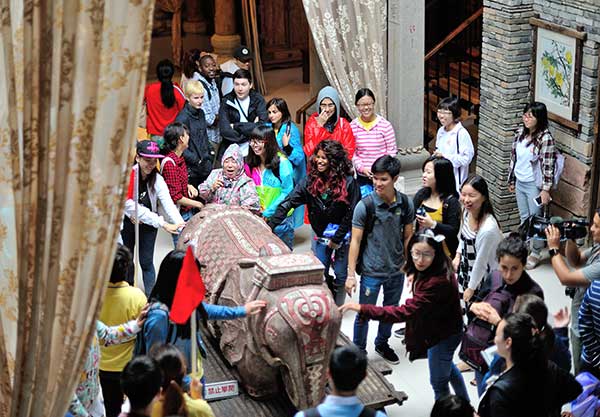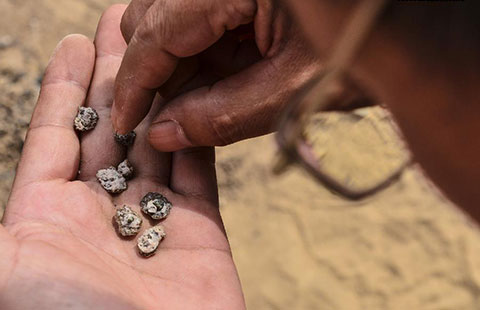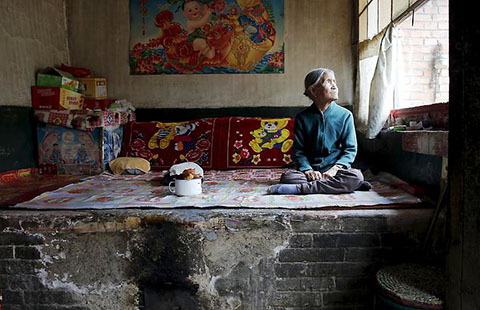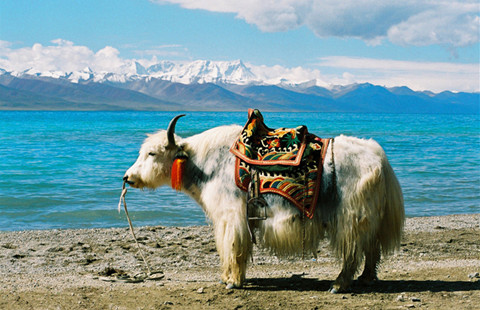Villages in Peril: tourists to the rescue
Updated: 2015-08-15 08:32
By Yan Yiqi in Jinhua, Zhejiang province(China Daily)
|
||||||||
 |
|
[Photo provided to China Daily] |
Protecting traditional villages has long been a priority for Jinhua government. Xu, the city's Party secretary, said that Jinhua spent more than 100 million yuan ($16.1 million) on traditional villages each year.
"Apart from tourism, we also protect the traditional villages through developing cultural industries. There are 49 historic houses that have been turned into museums, art galleries and exhibition houses in Jinhua."
Zhuge village in Lanxi county is one example of successful tourism development. It is one of the best preserved traditional villages in Zhejiang province. Ticket income at Zhuge village reached 18.75 million yuan last year.
The village started developing tourism in 1995, when most villages in China were still unaware of the importance of preserving traditions by developing tourism. To preserve the village, the local government invited professional architectural teams to come up with plans. During the past 20 years, the village has invested more than 40 million yuan in refurbishing and infrastructure construction.
Zhuge Kunheng, Party secretary of the village, says he recalls a group of professors and students from Tsinghua University visiting the village in 1991 and called for preservation of the village.
"They said we could develop tourism after refurbishing the old houses and maintaining the whole structure of the village. I thought that was impossible. Who would have thought that cowsheds can be tourism spots?"
Apart from cowsheds, the country's tourism spots that boast pig barns are also popular.
Now, income from tourism is able to cover costs including further protection and construction of the villages and the welfare of villagers.
"Now, I would say that tourism based on protecting traditional villages is promising, because such villages are becoming fewer," Zhuge says. "Many people would have regretted that they had torn down their old houses five or 10 years ago."
It is still not too late for other traditional villages to get on the bandwagon, Zhuge says.
"Our current success will be their success in the future."
- IS likely uses mustard agent in Iraq attack
- Fidel Castro marks 89th birthday with surprise visit
- Switzerland begins public consultations on joining China-led AIIB
- Malaysia seeks increased trade ties with China
- China salutes veterans of anti-Japanese aggression war
- 5 Japanese ex-PMs show concerns over security bills

 Times Square 'Kiss-In'
Times Square 'Kiss-In'
 School turns into place of shelter in Tianjin
School turns into place of shelter in Tianjin
 Earliest site of coal fuel found in Xinjiang
Earliest site of coal fuel found in Xinjiang
 Top 10 Chinese cities with highest property prices
Top 10 Chinese cities with highest property prices
 Comfort women: Scars have not been healed
Comfort women: Scars have not been healed
 Top 10 places to visit in Tibet
Top 10 places to visit in Tibet
 8 groups yuan depreciation will impact most
8 groups yuan depreciation will impact most-
 Historic kiss on grand scale
Historic kiss on grand scale
Most Viewed
Editor's Picks

|

|

|

|

|

|
Today's Top News
China investigates Tianjin blasts, experts focus on chemicals
PBOC promises effective steps for yuan stability
US oil slides to six-and-a-half year low under $42 as stocks build
US believes IS likely uses mustard agent in Iraq attack
12 firefighters among 44 killed in Tianjin explosions
Hacking blame a US power play: experts
Seattle's tallest building sold
Alibaba falls behind Amazon
US Weekly

|

|





